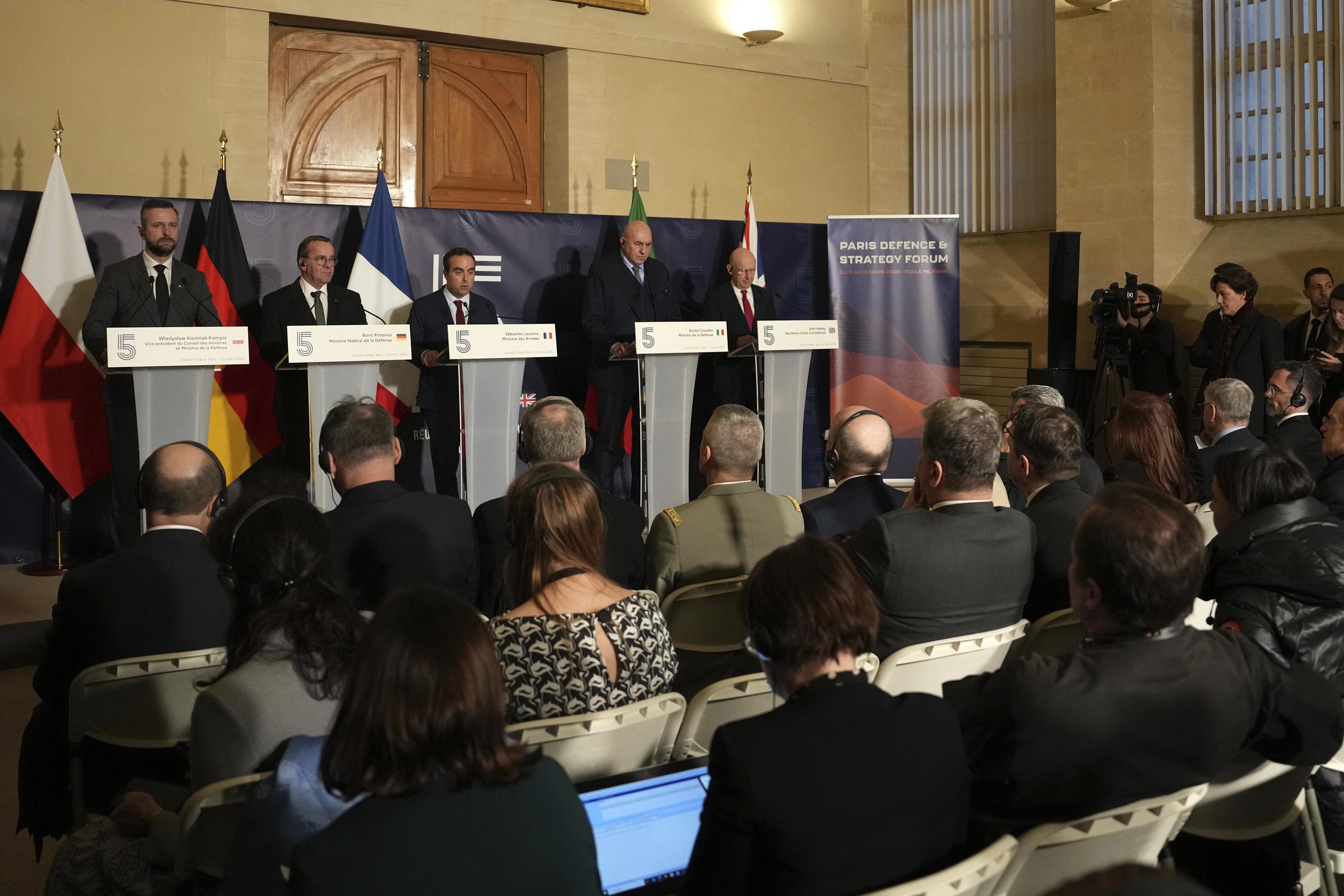Defense ministers from the five European countries with the largest armies (France, United Kingdom, Germany, Italy, and Poland) converged on Wednesday in Paris to discuss the "collective security" of the old continent. Ukrainian Defense Minister Rustem Umerov also attended as a guest at the meeting held at the Val-de-Grâce military hospital.
The two-phase meeting - one dedicated to security guarantees in a hypothetical peace agreement in Ukraine and the other focused on increasing Europe's defense capability - took place hours after a meeting held by Emmanuel Macron with the chiefs of staff from around thirty countries, including Australia and Japan.
French President Macron, criticized for his alarmist tone and his verbal sparring with Putin, plans to continue enhancing his military profile throughout the week with a meeting with the top officials of François Bayrou's government to analyze the increase in defense spending from 2% to 3.5% of GDP.
French Defense Minister Sebastian Lecornu acted as the host at the meeting held on Wednesday in Paris, following previous meetings between the five in Berlin and Warsaw. Lecornu emphasized that the discussion is focused on how NATO and Europe can defend the eastern flank "if the contribution of some countries or one in particular is reduced tomorrow," directly referring to the United States.
Lecornu highlighted the unity of the defense ministers in rejecting the possible demilitarization of Ukraine. "The first security guarantee is the Ukrainian army itself, its equipment, and its training," declared the French minister. "We are working to build a security architecture for lasting peace, and at the moment, there are 15 countries interested in participating in this process."
"European nations are intensifying their efforts," stated British Defense Secretary John Healey. "By deepening our defense cooperation, increasing spending, and enhancing our collective strength, we are sending a clear message: we will not hesitate to support Ukraine and defend our shared values."
The United Kingdom is taking the lead in diplomatic efforts to form the so-called "Volunteer Coalition," with around twenty countries willing to contribute troops to a supposed peace mission in Ukraine. Prime Minister Keir Starmer, who recently committed to also raise Defense spending to 3.5% of GDP, plans to hold a video conference with European leaders this Saturday to further advance the idea.
German Defense Minister Boris Pistorius, Polish Wladuslaw Kosiniac-Kamysz, and Italian Guido Crosseto were also present at the meeting at Val-de-Grâce. Poland and Italy are the countries that have expressed the most reservations about participating in a possible European peace mission in Ukraine, an option that Moscow has vehemently opposed.
(Defense Minister Margarita Robles did not participate in the meeting, although she was in Strasbourg on Wednesday on an official visit to the Eurocorps headquarters. Robles warned the day before that sending soldiers on peacekeeping missions is "a complex decision that will always be assessed in the context of EU countries' unity").
Meanwhile, in France, controversy is growing over Macron's warlike rhetoric and his attempt to project an image of a European "commander in chief" to mask domestic political problems. National Rally leader Marine Le Pen has accused the president of "playing on the fears" of the French and using a "too martial tone." "He is practically telling us that we must transform Kleenex factories into weapons factories because war in Europe could happen tomorrow," Le Pen declared.
Spokesperson Sophia Primas stated that the French government "is not escalating towards war," but simply "informing the French about Russia's role." Primas emphasized that Russia "has not only been active on Ukraine's border but has also been involved for years in cyber-attacks, spreading fake news, and interfering in elections."
